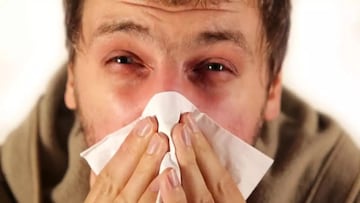What causes allergies? What’s the best treatment to reduce symptoms?
Allergy season is here. Here is the list of the most common symptoms and what you can do to get some relief.


With spring in the air, allergies become a common issue for many people.
Seasonal allergies are usually caused by increased pollen in the air as trees and flowers begin to bloom. Pollen is a fine powder flowers produce to fertilize other plants of the same species. While it is not harmful, some people’s immune systems perceive it as a threat and react by producing antibodies. This immune response is what we observe as allergies.
More from AS USA:
What are the symptoms of seasonal allergies?
Often, people wonder if they are suffering from allergies or have a cold caused by a virus because the symptoms can overlap.
"So, what are the allergies like in Austin?"
— Evil MoPac (@EvilMopacATX) April 1, 2025
Austin: pic.twitter.com/ToghhhXJ7d
According to the US Centers for Disease Control and Prevention (CDC), the most common symptoms of seasonal allergies include congestion, runny nose, and sneezing. The health agency estimates that sixty million people suffer from these symptoms each year. Additionally, some suffer from allergic conjunctivitis, which is the inflammation of the lining of the eye (conjunctiva) due to exposure to allergens like those in pollen.” Thirty percent of the population suffer from allergic conjunctivitis, which manifests as “red, watery, and itchy eyes.”
Looking for relief?
Related stories
Antihistamines can be helpful if you experience seasonal allergies. While these drugs are available over the counter in the United States, it’s recommended that you consult your doctor for a prescription to reduce the cost and gain access to generic yet highly effective drugs. Your doctor can run allergy tests to confirm if you are allergic to pollen, which can help to rule out infections.
It’s essential to note that if you believe that bacteria cause your symptoms, it’s crucial to speak with your doctor. Antibiotics won’t cure your symptoms unless your allergies lead to a severe sinus infection, and they can contribute to the misuse of these vital drugs. Although symptoms may overlap, consulting a medical professional before taking any medication increases the likelihood of receiving the appropriate treatment to relieve discomfort.


Complete your personal details to comment